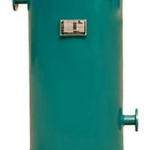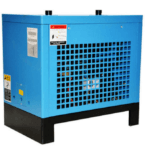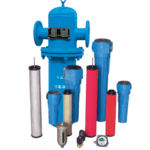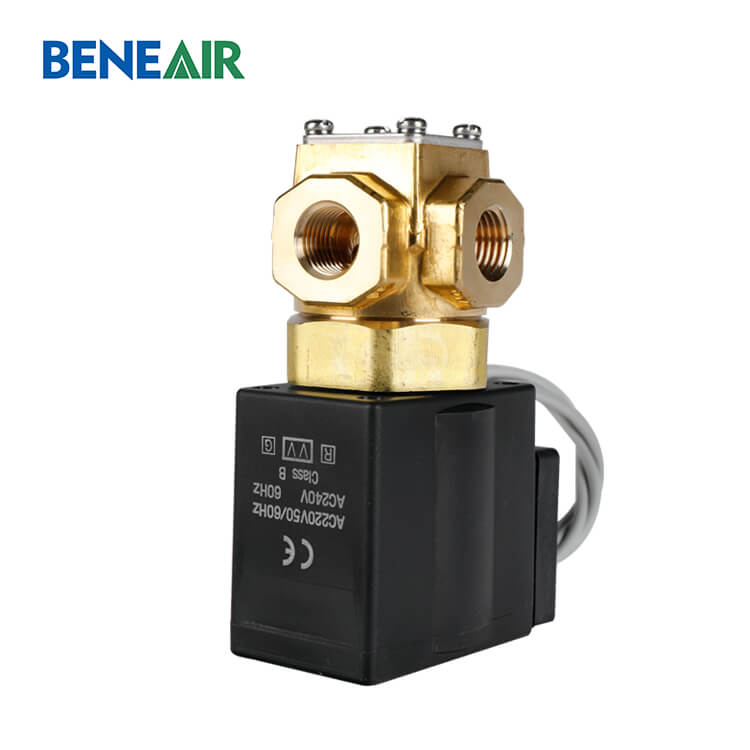Contents
The quality of your compressed air can be affected if the compressor has been placed in an area with a lot of air pollutants. Filters play a crucial role in your compact air system. Installing the correct filters and servicing them on a regular basis can assure a steady supply of clean air and decrease pressure drop in your operations.
Mucky compressor filters decrease compressor performance and enable dirt and grime to enter the compressor, clogging the divider and oil screens, polluting the oil, and potentially shortening the compressor’s life.
Why Do We Need Filter Systems in Air Compressors?
Why Do We Need Filter Systems in Air Compressors?
Pollutants must be kept out of high-precision production lines. Compressor design uses a compressed air filter to operate with airflow, which is clean from all particulates, oil droplets, and other fluids later. Compressed air raises the density of particles per cubic meter in the environment. Other pollutants are present in the air that leaves a compressor. Filters should be attached to the outflow to absorb contaminants even before they infect the process for getting the cleanest air quality attainable.
Pollutants can even harm your industrial products if you do not have a filter, resulting in lost output and a considerable expense. As a result, it is critical to utilize high-performance filters. Filters of lousy quality will work poorly, resulting in vast amounts of pressure fluctuations and an increase in energy consumption.

Working of Air Compressor Filter
Working of Air Compressor Filter
Air compressor filters catch large particles and remove fluids from compressed air by straining the air. Pressurized air flows through a net filtration system initially during filtration. The filter retains the granules, and the liquid crystallizes into fine droplets, which are subsequently transported to the filtration unit.
Fine particles precipitate on a surface with mesoporous properties when the compressed air starts to slow down. This makes it easier for particles to go out to the sink. Tiny particles are released from the outlet pipe after joining the drainage system. The bulk of the hydrocarbons, big particles, and liquid droplets are removed at this filtering step.
Advantages of Using an Air Compressor Filter
Advantages of Using an Air Compressor Filter
- It prevents causing costly equipment damage such as damage of metal components or clogging of valves and pipes due to fluid particles.
- It helps in preventing pollution of the goods, especially in the agriculture, pharmaceutical and medical industries.
- It increases the efficiency or life expectancy of specific other air-handling systems
- It prevents the flame’s unanticipated delay due to equipment failure and regular maintenance.
Components of Air Compressor Filter
Components of Air Compressor Filter
The following are the primary components present in an air compressor filter.
- Inlet
The air compressor entrance, also known as the inlet, is from where the air is pumped to the filter. The air is forced down into the swirl by an inside lid. It is vital to acquire the proper size inlet for your filter.
- Air Path
The exact route that air takes as it rotates like a whirlwind and flows through the air filter is the air path.
- Filter Cap
The air passing through the filtration system is directed by the filter cap. The indicator on the exterior of the filter indicates the way the air is flowing, and it also prohibits users from putting it incorrectly.
- Filter Element
The filter element removes impurities from the air by capturing particles throughout the process. Filters get blocked with time and should be maintained or changed.
- Filter Discharge
This opening lets air out of the filter, and it must be of the same size as the intake. The airflow will be restricted if the filtration outlet is too tiny. The airflow will be limited if the filtration outlet is too small.
- Filter Bowl
The filter bowl is the most visible element of the filter. It is punched or screwed into position and is attached to the lid.
- Drain
Residues and waste that have accumulated should be evacuated. You have to evacuate many filters manually, but some include automatic drains that are controlled by a slide or a motor controller.
Different Types of Air Compressor Filters
Different Types of Air Compressor Filters
- The most common types of Filters used in air compressors are:
In oil-lubricated air compressor filters, primarily used in rotary screw air compressors, are used to filter particles from crude oil because oil pollutants can shorten the span of the air compressor.
- Intake Filters
intake filters are installed at the air intake points to remove contaminants from the ambient air even before reaching the engine. Typically, these filters are designed to catch granules like dust and grit. Primarily these filters remove only dry particles.
- Inline Filters
inline filters are used to provide extra filtering for previously compressed air. A conventional particle inline filter can clean dry particles as small as 1 mm. But they do not sweep oil mists. Oil-lubricated air compressors mostly require an inline filter to handle both particles and oil. Inline filters can be positioned right after the air compressor.
Different Types of Air Compressor Filters
Different Types of Air Compressor Filters
The most common types of Filters used in air compressors are:
- Oil-lubricated Air Compressor Filters
In oil-lubricated air compressor filters, primarily used in rotary screw air compressors, are used to filter particles from crude oil because oil pollutants can shorten the span of the air compressor.
- Intake Filters
intake filters are installed at the air intake points to remove contaminants from the ambient air even before reaching the engine. Typically, these filters are designed to catch granules like dust and grit. Primarily these filters remove only dry particles.
- Inline Filters
inline filters are used to provide extra filtering for previously compressed air. A conventional particle inline filter can clean dry particles as small as 1 mm. But they do not sweep oil mists. Oil-lubricated air compressors mostly require an inline filter to handle both particles and oil. Inline filters can be positioned right after the air compressor.
When Should You Replace the Filters?
When Should You Replace the Filters?
Filters must be maintained and replaced on a constant basis in order to function correctly and give the highest standard filtration. If the compressors are used for extended periods of time on a frequent basis, the maintenance program needs to be more often, with continuous inspections and professional cleaning.
Variations in air production and symptoms of deterioration or oversupply are two of the most critical indicators. The technicians can estimate how long their filters will work and when it is the right time to get a new one by examining them on a daily basis.
Why is There a Need to Replace Filters?
Why is There a Need to Replace Filters?
These harsh and shifting circumstances can cause a loss of efficiency, decreased operating performance rate, and material deterioration over time. A dependable and robust filter is essential for continued performance in difficult situations.
If you do not change the filters, your air compressor system, the components and items will be severely harmed. As a result, efficiency suffers, expenses rise, and the likelihood of failure increases. So the filters should be replaced according to the given instructions for optimum efficiency, expense, and energy production.













Leave A Comment